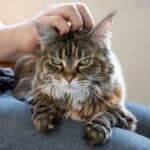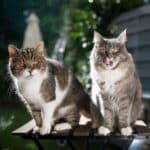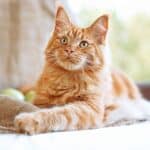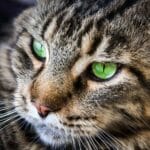True meows are rare, but you're sure to hear chirps/trills frequently throughout the day. With that in mind, this chirping is not annoying at all. If your Maine Coon is constantly meowing, your Maine Coon may want to tell you something. It could be a sign of illness, unhappiness, or your Maine Coon may have reached sexual maturity.
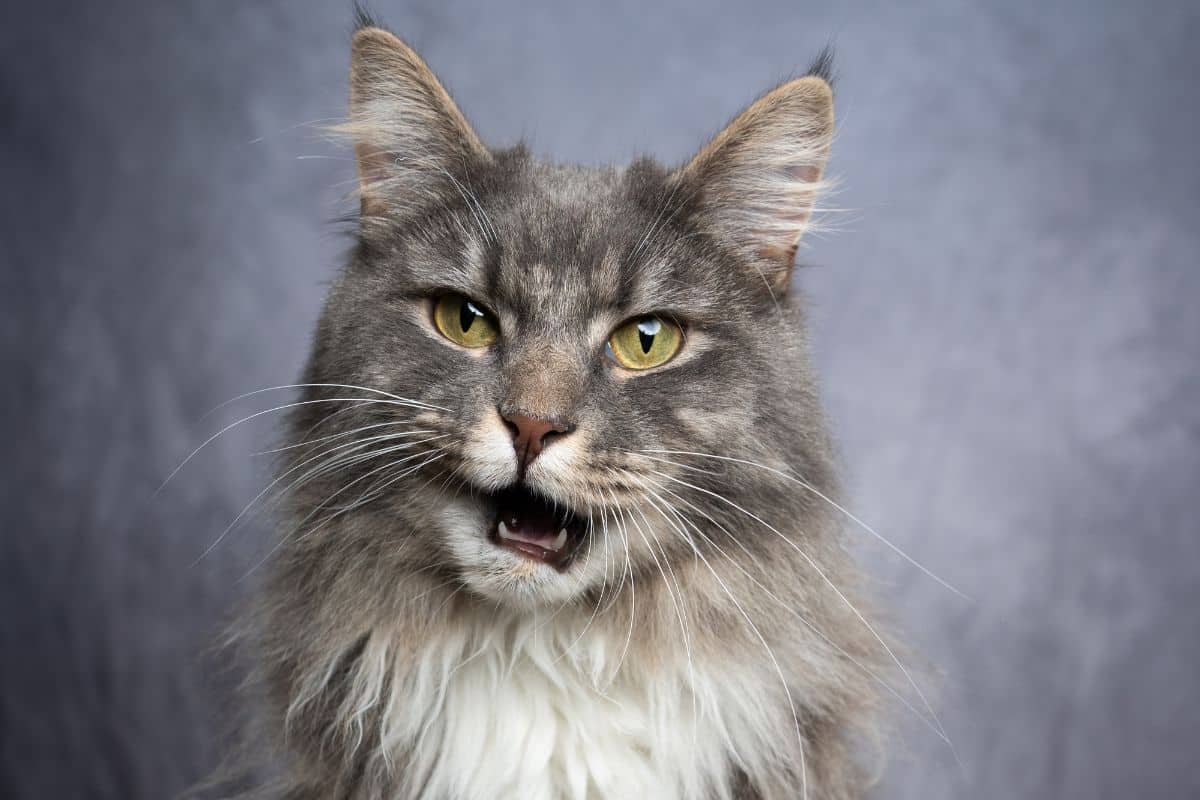
There are many situations where you will hear your Maine Coon making a chirping/rattling sound, which is very typical for Maine Coons. If your Maine Coon is constantly meowing, there may be something wrong. If you are interested in how loud Maine Coon cats really are and what you can do about the constant meowing,
It's one of the most unique sounds any cat breed can make, and it's surprising to most people at first. So why do Maine Coons chirp? It's not a standard meow, and I was curious about the answer, so I researched.
Maine Coons chirp to express their needs and emotions to their owners. Maine Coons chirp when they need food, treats, fresh litter if they are in distress and a host of other things that cats crave. Chirps and trebles are also a sign of happiness and affection.
A Maine Coon will chirp and trill to get your undivided attention. It's a distinct sound that should get your attention right away. Once they know that your gaze is solely on them, they will begin to lead you to what they want if it is something that they think needs your attention. This article will look at the different ways Maine Coon cats chirp, what they mean, and more!
Jump to:
Why are Maine Coons so vocal?
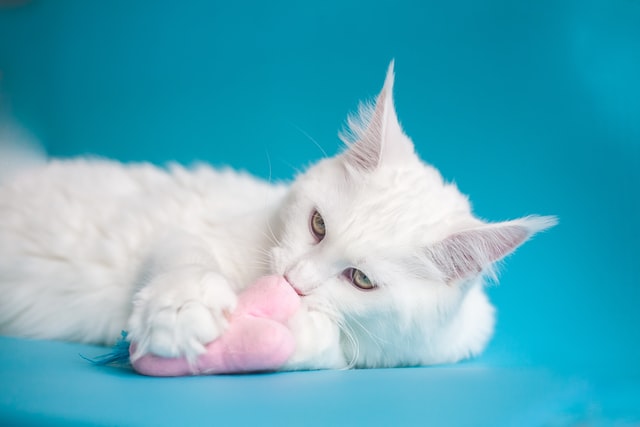
Trilling is a sign of excitement and happiness. They love human company and are social animals who can't help but follow you around and talk to you. Usually, cats meow to get attention. Adult cats do this less often than kittens. However, Maine Coons are a bit different. Usually, cats purr when they are happy, but they purr for various reasons.
Cats have been found to purr when they are anxious, sick, or even in pain. The same is true for Maine Coons, but this can be confusing because they can be particularly vocal. They even howl! Sometimes you will notice your Maine Coon talking louder to new people or animals. This may be their way of saying "hi" to them and being their usual friendly self, but don't forget that underneath that fluffy fur, they are cats.
They can be just as territorial as other cat breeds. You can expect your Maine Coon to talk all day long. It's not just crying out for your attention and affection like most cats, but actually socializing with you. If he feels that his space has been invaded and the household balance has been disrupted, you can bet that he will make a statement.
He interrupts your socializing routine if you go to work, so he continues when you return with a greeting followed by a desire to reconnect with you. You can certainly expect your Maine Coon to be greeted almost every time you pass him. Expect to hear squeaks. Don't worry. When he is really hungry or thirsty, he will let you know, and pretty soon, you will learn to notice his needs. Maine Coon cats talk. They make these distinct, hollow meows when they communicate their needs.
What do owners think about it?
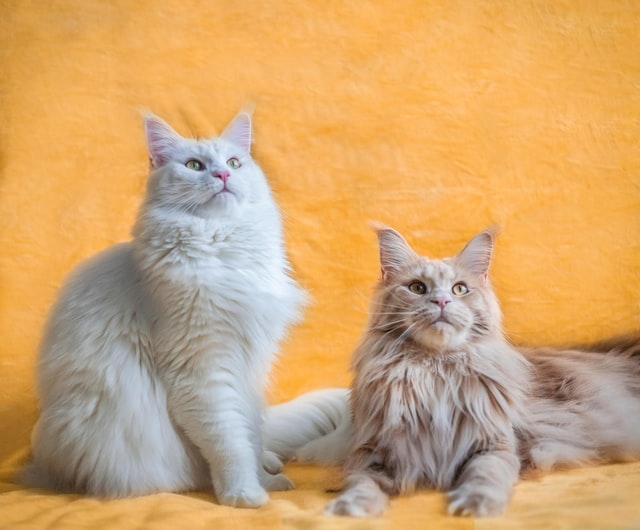
Most people love these talkative cats and play along, finding them adorable. You can even have a whole conversation with them. You can talk about one thing and the cat about something else, but it's great fun. They can be very affectionate and intelligent. Not all Maine Coon breeds understand human speech, but they can pick up on our behaviour, mood, and words and make associations.
This is one reason why Maine Coons are compared to dogs. It's all fun and games until they keep you up at odd hours at night. Cats have a reputation for being nocturnal. Indeed, they sleep much more during the day and have all the unused energy when it is their turn to sleep.
In reality, however, they are most active at dawn and dusk. In nature, this is when their prey is most active. You could say that they are wired that way. If your Maine Coon isn't letting you sleep at night, he's probably just hungry or wants to play to use up some of his excess energy. To get a good night's sleep, you can make sure he's active during the day, and you keep a tight meal schedule.
You can keep your Maine Coon in an enclosed space such as a basement if you want to block out his crying, but don't forget, they are social animals, and this kind of isolation can affect their temperament.
Why do Maine Coons talk so much?
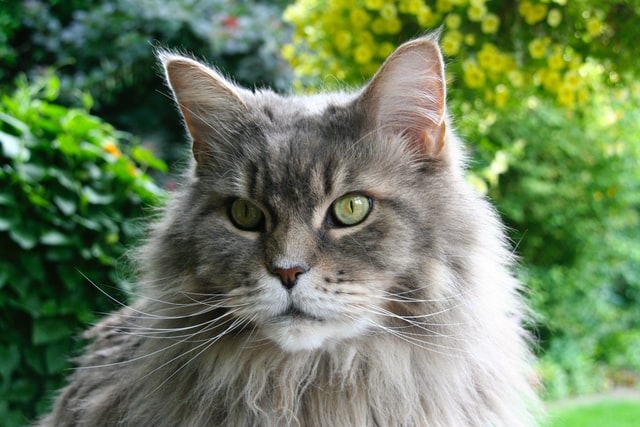
Maine Coons are an extremely vocal breed, and there are several reasons for the sounds they often make.
This is their only way of communicating with people, and you should know that there must be a reason behind each of their unique characteristics.
We will take a look at each type of sound they make when talking to us and find out what the likely reasons are.
1. Meowing:
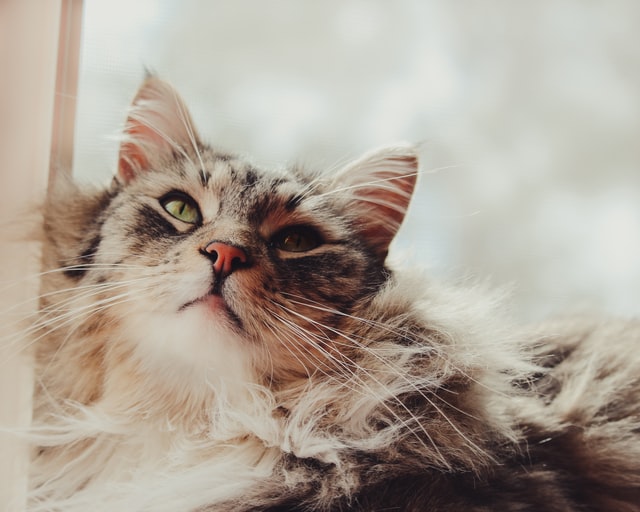
This is one of the most commonly used methods of communication, especially with humans. Cats do not use this method of communication when they talk to each other.
You should always respond to these meows as one of the loudest your Maine Coon will ever be. This generally means one of the following:
If your cat is meowing near the food bowl or kitchen, he is probably hungry and wants you to feed him. The sound has a pleading tone, and it will be hard for you not to respond to it. So, it will be better to provide your Maine Coon with some food.
Maine Coon cats always need attention from their owners, which is one of the conditions for their well-being. Therefore, if you don't give attention properly, it will explain it with frequent meows around.
Maine Coon cats do not always like to lock their doors. They want to spend as much time as possible with their loved ones. If they are unhappy about not spending time with you, they will let you know this with repeated meows outside the door.
2. Howling:
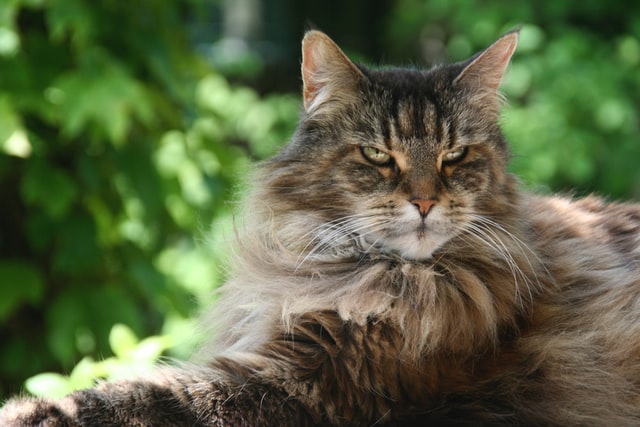
Howling can be the result of several physical or mental situations. Reasons include:
Minor physical pain can cause a cat to howl. It is their way of communicating with people. If this is the case, you may want to take your Maine Coon to the vet for a complete check-up. It is better to be safe in these situations.
Older Maine Coon cats often suffer from cognitive dysfunction. They struggle with most daily tasks and howl with frustration.
Maine Coon cats need your attention and may become bored if you do not spend time with them. Howling may be a result of their boredom.
3. Purring:
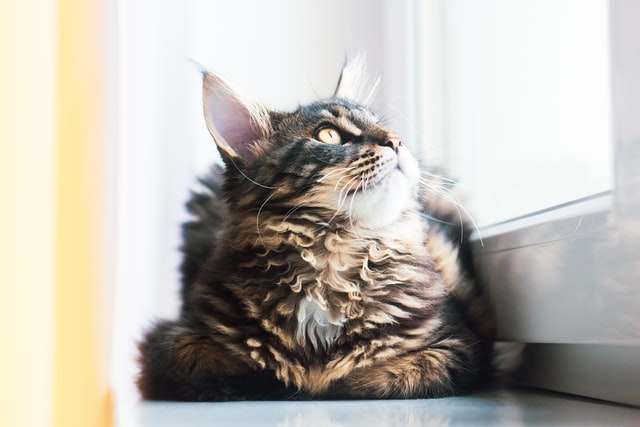
Purring cats can be the result of a myriad of situations. Therefore, it is often difficult to determine the actual reason for it. However, knowing the probable cause can help you choose the real reason for the purring.
You can often relate purring to a happy cat. If your cat is happy and content in your presence, it will slowly purr next to you. You can take this reassurance and love your cat more.
Cats may also purr nearby if they are hungry. This is one of their ways to annoy you until you give them food.
Purring is also a comforting activity for them. They often purr while healing an illness or wound.
A Maine Coon may also purr in protest of something you have done. For example, they may purr when you try to play with them, but they want to be alone.
4. chirping:
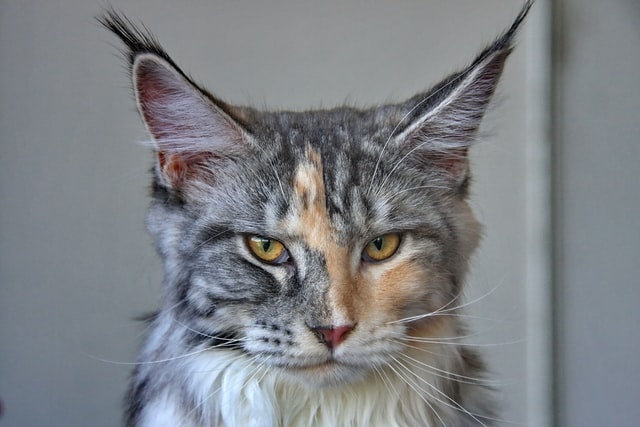
Chirping is their sound when they are happy or about to get into a friendly fight with another cat. If your cat makes the "rrrrrruh" sound, leave it be and watch their actions.
5. Hissing:
This rare sound may indicate that your Maine Coon is agitated or annoyed with you.
You should find and remove any changes you have made recently. It should help them calm down and will help stop them from making this sound.
6. Growling:
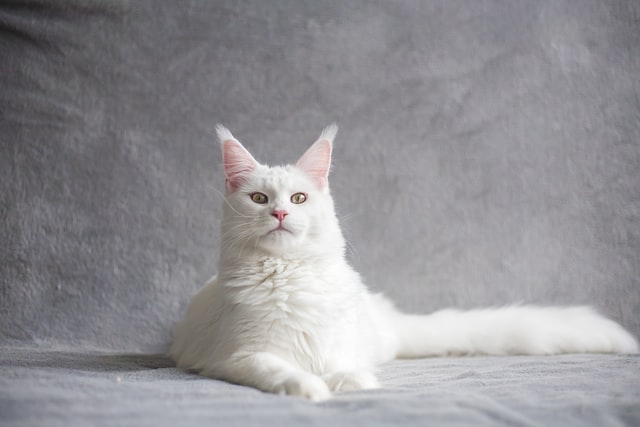
Growling is another one of those sounds that should alert you to the condition of your Maine Coon. Generally, Maine Coons are extraordinarily calm and friendly. However, the act of growling is entirely contrary to their natural behaviour.
If you wonder what makes a Maine Coon growl, it is most likely something that makes them agitated or angry. There could be millions of things that your cat may not like, and you need to determine which ones cause this type of behaviour in your cat.
For example, sometimes Maine Coons prefer a quiet environment for some alone time. If you persistently invade their space, Maine Coons tend to become anxious.
Cats have a greater need for privacy than other animals, and as a result, they can be quite easily offended. If you notice your cat growling at any time, it's best if you can determine the cause. As soon as you remove the reason, your cat will eventually recover. Leaving them alone is also one of the best things you can do if your cat growls at you.

